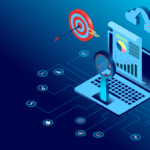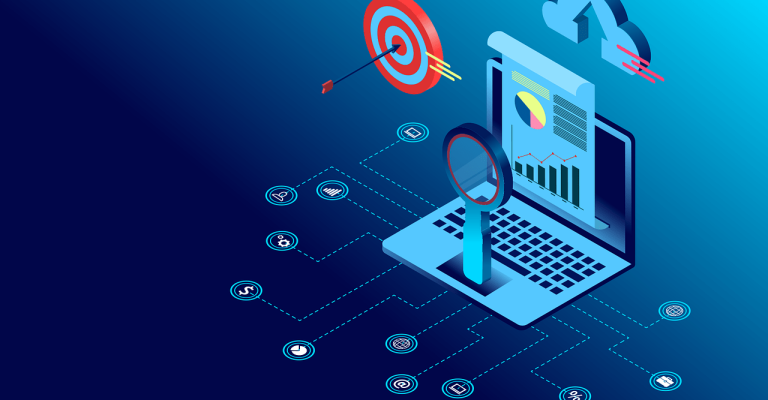Online Privacy Introduction
In today’s digital age, safeguarding your online privacy is more important than ever. From social media interactions to online shopping, our digital footprints are expanding, making it crucial to protect personal information. Whether you’re an avid internet user or someone who only checks emails occasionally, understanding how to keep your data safe is essential. Here’s your comprehensive toolkit to enhance your online privacy.
Understanding Online Privacy
Online privacy refers to the level of protection your personal information has while you’re connected to the internet. This includes everything from your email address and social media accounts to your browsing history and financial information. Protecting this data helps prevent identity theft, financial fraud, and unwanted surveillance. In an era where data breaches are increasingly common, taking steps to secure your information is not just advisable but necessary.
Essential Tools for Online Privacy
1. Virtual Private Network (VPN)
A VPN encrypts your internet connection, making it difficult for hackers or third parties to track your online activities. It masks your IP address, ensuring anonymity and secure browsing. This is especially useful when using public Wi-Fi networks, which are often unsecured. Popular VPN services include NordVPN, ExpressVPN, and Surfshark, all of which offer user-friendly interfaces and robust security features.
2. Password Managers
Creating strong, unique passwords for each of your accounts is a fundamental step in online security. Password managers like NordPass, 1Password, and Dashlane generate and store complex passwords, ensuring you don’t have to remember them all. These tools also automatically fill in login details, making the process of accessing your accounts both secure and convenient.
3. Two-Factor Authentication (2FA)
Two-factor authentication adds an extra layer of security by requiring a second form of verification (like a text message code or authentication app) in addition to your password. Enabling 2FA on your accounts significantly reduces the risk of unauthorised access. Apps like Google Authenticator, Authy, and even SMS-based 2FA can make your accounts much more secure without adding much complexity to your login process.
4. Antivirus Software
Reliable antivirus software protects your devices from malware, spyware, and other cyber threats. Options like Norton, Malwarebytes, and Bitdefender provide comprehensive protection and regular updates to keep your system secure. Modern antivirus programs also include features like phishing protection and real-time threat detection, ensuring that you stay safe from new and evolving threats.
5. Privacy-Focused Browsers
Using browsers that prioritise privacy can help minimise data tracking. Browsers like Brave, Firefox, and Tor are designed to block trackers and protect your browsing habits from prying eyes. Brave, for instance, blocks ads and trackers by default, while Firefox offers extensive customisation options to enhance privacy. The Tor browser provides the highest level of anonymity by routing your connection through multiple servers worldwide.
6. Encrypted Messaging Apps
Ensure your communications are private with encrypted messaging apps such as Signal, WhatsApp, and Telegram. These apps use end-to-end encryption to ensure that only you and the recipient can read your messages. Signal, in particular, is lauded for its strong security measures and is recommended by privacy advocates around the globe.
7. Ad Blockers and Anti-Tracking Tools
Ad blockers and anti-tracking tools prevent advertisers from collecting data on your browsing habits. Extensions like uBlock Origin, Privacy Badger, and Ghostery can be added to your browser for enhanced privacy. These tools not only block intrusive ads but also stop trackers that follow you across the web, building profiles on your interests and behaviours.
Best Practices for Online Privacy
1. Be Wary of Public Wi-Fi
Public Wi-Fi networks are often insecure, making it easier for hackers to intercept your data. Avoid accessing sensitive information or logging into personal accounts when connected to public Wi-Fi. If necessary, use a VPN for a secure connection. Remember, even with a VPN, it’s wise to limit activities that involve sensitive data on public networks.
2. Adjust Privacy Settings
Regularly review and adjust the privacy settings on your social media accounts, browsers, and apps. Limiting the amount of personal information, you share publicly reduces the risk of it being misused. For instance, on Facebook, you can control who sees your posts and personal information, while browsers like Firefox offer detailed privacy settings that allow you to manage cookies and trackers.
3. Regular Software Updates
Keeping your software, apps, and devices updated ensures you have the latest security patches and protections against vulnerabilities. Cybercriminals often exploit weaknesses in outdated software to gain access to your information. Enable automatic updates wherever possible to stay protected without needing to remember to check for updates manually.
4. Be Cautious with Personal Information
Think twice before sharing personal information online. Avoid posting sensitive details like your home address, phone number, or financial information on social media or unsecured websites. Additionally, be mindful of phishing scams that attempt to trick you into divulging personal information through seemingly legitimate communications.
5. Educate Yourself
Stay informed about the latest online privacy threats and best practices. Regularly reading articles, attending webinars, and following cybersecurity news can help you stay ahead of potential threats. Many organisations, like the Electronic Frontier Foundation and Privacy International, offer resources to help you learn more about protecting your privacy.
6. Use Secure Email Services
Consider using secure email services like ProtonMail or Tutanota, which offer end-to-end encryption and enhanced privacy features. These services ensure that your emails are protected from prying eyes, both during transit and while stored on their servers.
7. Limit App Permissions
Review and limit the permissions you grant to apps on your devices. Many apps request access to more information than they need to function. By restricting these permissions, you can reduce the amount of data that apps collect about you.
8. Regular Privacy Audits
Conduct regular privacy audits of your digital footprint. This involves reviewing your online accounts, social media presence, and the information available about you on the internet. Tools like Google Alerts can help you monitor mentions of your name online, allowing you to act if sensitive information is shared without your consent.
Conclusion
Protecting your online privacy doesn’t have to be overwhelming. By incorporating these essential tools and best practices into your digital routine, you can significantly enhance your online security. Remember, your online privacy is in your hands – take the necessary steps to protect it. In a world where digital threats are constantly evolving, staying vigilant and proactive is key to keeping your privacy and security.














